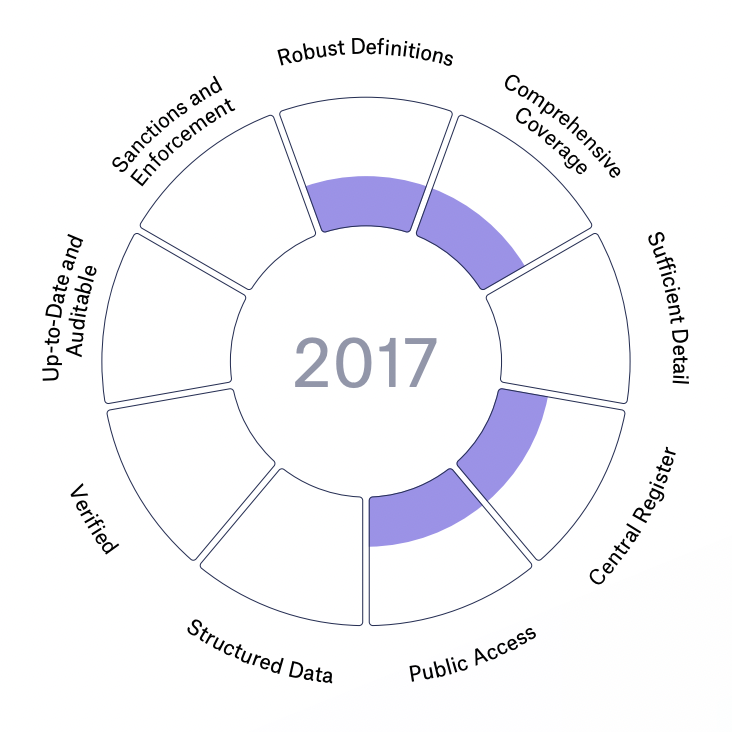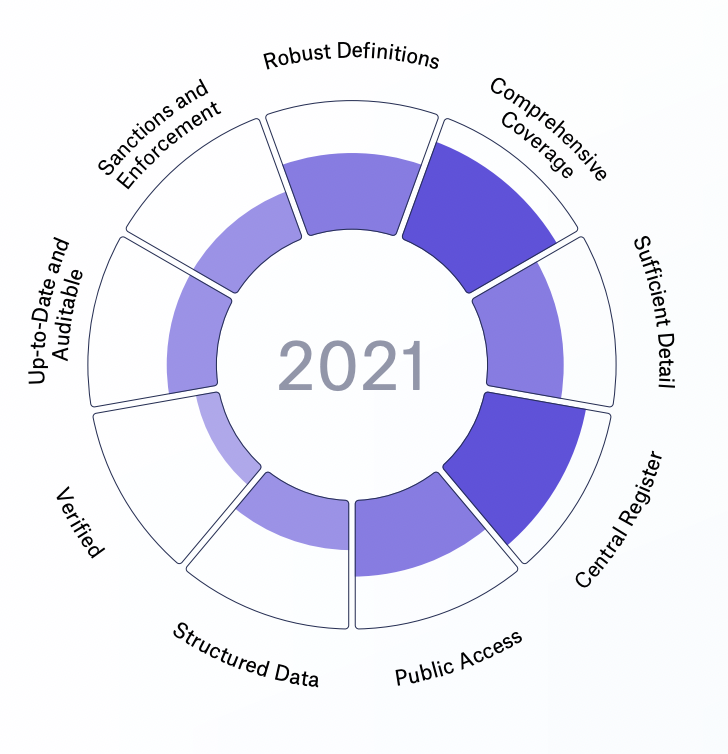Transforming Procurement Systems in Nigeria
Case Study: Open Ownership and the Nigerian Government
Situation
Between 2003 and 2012, Nigeria lost an estimated USD 157.5 billion to illicit financial flows. These losses were driven by corruption, tax evasion, terrorism and drug trafficking, and are equal to 53% of an average year’s GDP over the same period. President Muhammadu Buhari deplored the losses, declaring that they deprive the Nigerian state of resources required “to fund public services and to alleviate poverty". Perpetrators were exploiting a system that let them move and hide ownership of money and assets using anonymous companies.
In May 2016, the Nigerian government made a commitment at the London Anti-Corruption Summit to implement a public register of the true owners of companies incorporated in Nigeria. This would deliver high-quality, connected data about who owns, controls, and benefits from Nigerian companies, and is a big step towards eliminating anonymity - it’s called beneficial ownership transparency (BOT).
BOT helps tackle corruption, reduce investment risk, and improve national and global governance. Nigerian Vice President Osinbajo underscored the importance of BOT by saying:
“For us in Africa, breaking the wall of secret corporate ownership is an existential matter. It is for us literally a matter of life and death.” - Nigerian Vice President Osinbajo
Task
Open Ownership (OO) was invited to start working with the Nigerian government in 2018. Many government agencies lacked either a practical understanding of beneficial ownership, or the methods for effectively implementing the necessary legal and technical changes. With funding from the UK Government's International Anti-Corruption Programme, OO was tasked with supporting the Nigerian Corporate Affairs Commission (CAC) to help design and implement beneficial ownership reforms in close cooperation with civil society stakeholders.
Action
Leveraging Nigeria’s commitment to a public BOT register, OO worked with the Open Government Partnership, CAC, and the World Bank to design an inclusive and purposeful consultation process for Nigeria’s reforms.
Legislative processes were complicated, but eventually passed, and in 2019 and 2020 OO and CAC took forward the design and implementation of technical and software systems.
OO provided three pieces of critical support by:
- Helping Nigeria make the decision to collect data on all persons with significant control of companies, not just owners. CAC set the threshold at 5% control, whereas in the UK, for example, it is 25%. This shows a robust approach to reform.
- Supporting development of prototype software which captures full beneficial ownership information of all companies newly registered from 1 January 2021.
- Revising data collection forms to capture information about beneficial owners from all existing Nigerian companies as they file their mandatory annual returns. This means the registry will become increasingly populated and useful over time.
In the meantime, the extractives industry in Nigeria decided to implement a standalone register to ensure the country’s compliance with the international extractives industry standard. OO provided priority technical assistance to support the responsible agency throughout 2019, and analysed the initial extractives data to inform future improvements.
Figure 1. Nigeria's alignment to the OO Principles in 2017

Figure 2. Nigeria's alignment to the OO Principles in 2021

OO built a reputation as a trusted technical partner: the Registrar General, Alhaji Garba Abubakar, said:
“Open Ownership’s support and policy guidance has been immensely valuable in planning for beneficial ownership reform.” - Alhaji Garba Abubakar, Registrar General
Result
In December 2019, the extractives industry register went live, making Nigeria the first African country to launch a public beneficial ownership register. For the first time, information on the 182 oil and gas and 206 mining companies operating in Nigeria is freely available online.
CAC met its January 2021 deadline and released a prototype of their economy-wide beneficial ownership disclosure system, which uses the tools and resources they developed in collaboration with OO. Encouragingly, Nigeria has now joined the Beneficial Ownership Leadership group convened by OO with the Open Government Partnership in 2019.
Conclusion
OO will continue to work with Nigeria to develop the prototype register into a comprehensive system, providing data on companies across the economy to meet the needs of companies, civil society, and government. Together, we will implement verification systems to deliver high quality data that can combat corruption and help deliver fair and effective taxation for Nigeria.